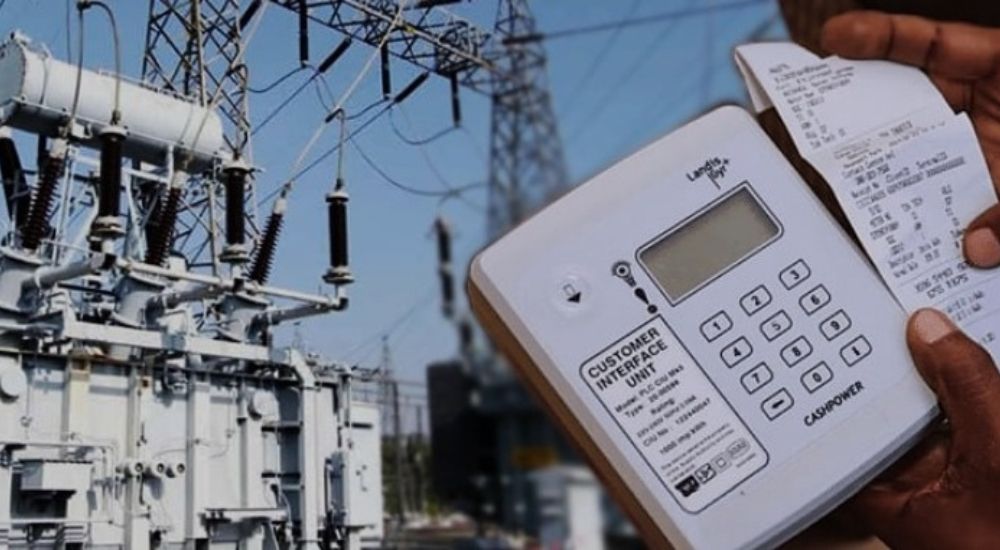Nigerian Electricity Consumers on Thursday called on the United Nations Watch, Global Rights, and the Commonwealth Human Rights Initiative to intervene in
in the alleged systematic violation of consumer rights in Nigeria’s electricity sector.
THE WHISTLER reports that the Electricity Distribution Companies, also known as DisCos, are responsible for the billing collection in the Nigerian Electricity Supply Industry (NESI).
Speaking on behalf of the electricity consumers, the Executive Director of the
Electricity Consumer Protection Advocacy Centre,
Chief Princewill Okorie,
said discussions about tariff adjustment must prioritise consumer protection, fairness, and respect for Nigeria’s constitutional and international human rights obligations.
He spoke in Abuja during the 5th Annual Conference of the Power Correspondents Association of Nigeria (PCAN).
He said, “Protection of electricity consumers’ rights in Nigeria should be paramount in any discussion concerning tariff because it is the consumers who pay at the end.
Advertisement
“We are drawing the attention of the United Nations Watch, Global Rights, and the Commonwealth Human Rights Initiative to the plight of Nigerian electricity consumers for their intervention.”
He faulted the current tariff system, alleging that consumers are being exploited through estimated billing, neglected infrastructure, and a lack of transparency in how approved operational (OPEX) and capital (CAPEX) expenditures are utilised by Distribution Companies (DisCos).
According to him, many electricity consumers fund transformers, cables, and other infrastructure out of pocket, costs that should ordinarily be borne by the DisCos, without receiving refunds or recognition.
Okorie warned that such practices contravene constitutional provisions guaranteeing human dignity, equality, and social justice, as well as Nigeria’s obligations under international covenants on economic, social, and cultural rights.
He urged the Nigerian Electricity Regulatory Commission (NERC), the Federal Government, and the DisCos to ensure full compliance with existing laws.
Advertisement
Page 12:
Journalists Demand Fair, Transparent Electricity Pricing
System
Meanwhile, journalists covering Nigeria’s Power sector under the auspices of the Power Correspondents Association of Nigeria (PCAN), on Thursday, demanded a fair and transparent electricity pricing framework.
They argued that the framework would balance economic sustainability with public welfare.
The Chairman of the association, Mr Obas Esiedesa, in his welcome address at the opening of its 5th Annual Conference in Abuja, said the most pressing challenge before Nigeria’s electricity sector was not the implementation of the cost-reflective tariffs.
The conference was themed: “Cost-Reflective Tariff vs. Energy Poverty: Finding a Pricing Balance in Nigeria’s Power Sector.”
Advertisement
He said while operators continue to push for cost-reflective tariffs as a condition for financial viability, millions of Nigerians are still trapped in energy poverty, either without access to electricity or struggling to pay for unreliable supply.
“The question before us is not whether we need cost-reflective tariffs, we do. The real question is how to achieve a fair, transparent, and socially responsible pricing framework that balances economic sustainability with public welfare, ” he said.
Esiedesa lamented that more than a decade after the privatisation of the power sector, Nigeria is still grappling with liquidity shortfalls, a mounting ₦6tn government debt to generation companies, gas supply constraints, weak transmission infrastructure, and rising foreign exchange costs that threaten sector stability.
According to him, the challenges have continued to frustrate efforts at achieving a reliable power supply and discourage private investment, while households and businesses bear the brunt of high tariffs and erratic service.
Citing World Bank data, Esiedesa noted that about 85 million Nigerians, roughly 43 per cent of the population still lack access to grid electricity, making Nigeria the country with the world’s largest electricity access deficit.
He said the persistent gap between cost recovery and affordability highlights the need for innovative pricing models and policy coherence that will make electricity both financially viable for operators and affordable for citizens.
Esiedesa stated that electricity pricing is not just a technical or economic issue, but one that directly affects national development, productivity, and citizens’ quality of life.
“As journalists who follow this sector closely, we understand that the discourse on tariffs must go beyond numbers; it must address fairness, accountability, and public trust,” he added.
He reaffirmed PCAN’s commitment to using journalism as a tool for driving reform through factual reporting, constructive engagement, and evidence-based advocacy.

